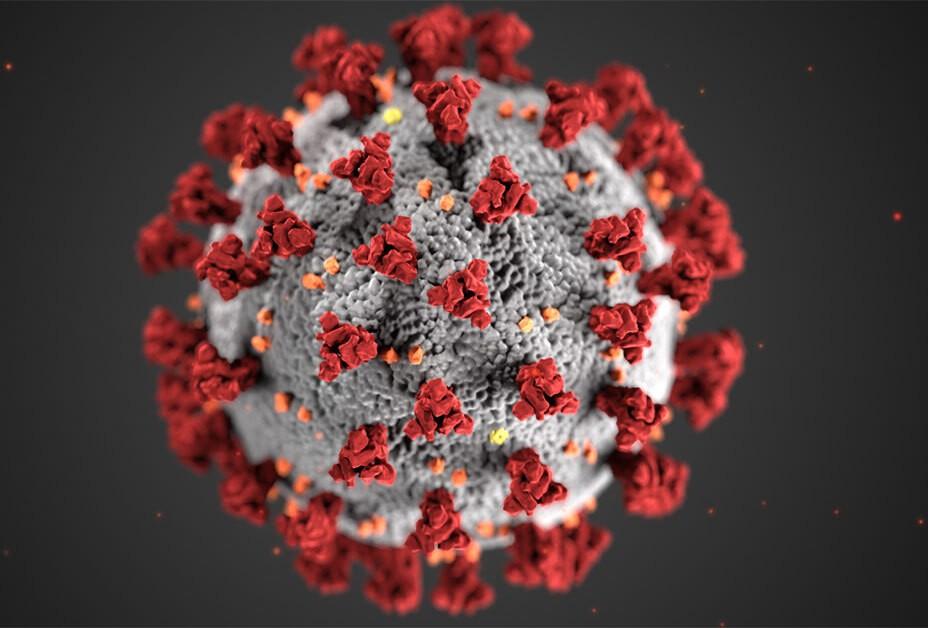Political and spiritual beliefs can motivate noncompliance with COVID-19 prevention measures in rural communities, such as mask mandates and social distancing guidelines, according to a recent Georgetown University study.
Emily Mendenhall, professor in the School of Foreign Service, authored the paper “A Spectrum of (Dis)Belief: Coronavirus frames in a rural midwestern town in the United States,” which was published Feb. 9. The paper explores reasons why COVID-19 preventative response measures have not been evenly adopted by people across the nation, especially in rural communities. The research focuses on rural Dickinson County, Iowa, Mendenhall’s hometown, and analyzes various reasons residents cited as to why they were choosing not to follow health guidelines.
The study surveyed people who said they did not follow health guidelines, finding that political and cultural identities were an extremely important factor influencing people’s belief in the seriousness of the virus. Many cited mask-wearing guidelines as an infringement on “personal freedoms,” as well as conspiracy theories echoed by former President Donald Trump that the deadliness of the virus was overblown or would magically disappear after the election.

Rumors and conspiracy in remote communities can be linked to the lack of transparent, honest leadership from government officials, according to Mendenhall.
“I was fascinated to see just how little control the public health authorities had. I was just blown away at how political the response was,” Mendenhall said in a phone interview with The Hoya.
“When policy fails, people try to make sense of things. Having a strong federal response is the great equalizer — it enables people to have something to follow and guide them.”
Throughout the COVID-19 pandemic, the federal government’s public safety mandates have been inconsistent and generally lack proper enforcement. This issue is more prominent in rural communities across the country, where the majority of voters voted for and subscribed to former President Trump’s personal response to the pandemic, which often countered the suggestions and mandates of the U.S. Department of Health and Human Services.
A stark political urban-rural divide has come into focus in recent years, and rural counties voted in even greater overwhelming numbers for Trump in the 2020 presidential election compared to 2016. Rural Americans are less likely than their urban counterparts to follow COVID-19 prevention measures, according to a study published by the Texas A&M University School of Public Health. Although early outbreaks of COVID-19 were mainly concentrated in cities and suburbs, per capita cases and deaths in rural areas have surpassed metropolitan areas since August 2020, according to The New York Times.
Administering the study was a deeply personal experience for Mendenhall, who was inspired after observing the difficulties Zach Borus, her brother-in-law and a co-author of the study, faced while organizing and leading a pandemic response plan for Dickinson County, she said.
“In the D.C. area, everyone was really cautious and staying at home. People were wearing masks, and if you weren’t following accepted guidelines there was some sort of social surveillance where everyone was trying to keep the community safe,” Mendenhall said. “When I got out to Iowa, no one was wearing masks, and it kind of felt like there was no virus. I was just curious to see what people thought and why they weren’t wearing masks.”
The consequences of ignoring COVID-19 prevention guidelines can be especially deadly for smaller areas like Dickinson County that lack the hospital capacity or critical health care resources needed to deal with an outbreak. As a result, a disproportionate amount of the worst virus outbreaks have occurred in remote counties with fewer than 10,000 people, mostly in the Midwest and Mountain regions.
Political fissures can easily undermine the response capabilities of the medical and scientific community, no matter how obvious the danger may seem based on scientific evidence, according to Mendenhall. She pointed to the fact that the United States was ranked as the most prepared nation to respond to a pandemic in 2019 by the Global Health Security Index but drastically failed to meet expectations in its response.
“You can know everything there is to know and be better prepared than anyone else and still fail when you don’t have political support for your response,” Mendenhall said. “With the deepening political fissures, public health and medicine were too slow to recognize dissonance.”
Mendenhall’s study provides valuable insight for how rural public health practitioners can reframe public health measures to protect their communities, according to Borus.
“As a family physician and public health practitioner in the study’s focus community in the rural Midwest, I feel honored to have been a part of this project,” Borus wrote in an email to The Hoya. “Its in-depth qualitative interviewing of such a diverse group helped tease out the cultural, political, and social barriers to full buy-in for our public health efforts around COVID-19.”
Scientific misinformation in future crises can be combated by implementing nationally coordinated response measures that prioritize educating people about science and policy, according to Mendenhall.
“Doing this study showed me that doing more public engagement is important and we need to do what we can do to normalize science and make it accessible and easy for people to understand,” Mendenhall said. “Policy matters because when cultural alignment and groupthink take over, it can be really complicated to make any headway towards a collective goal.”




















